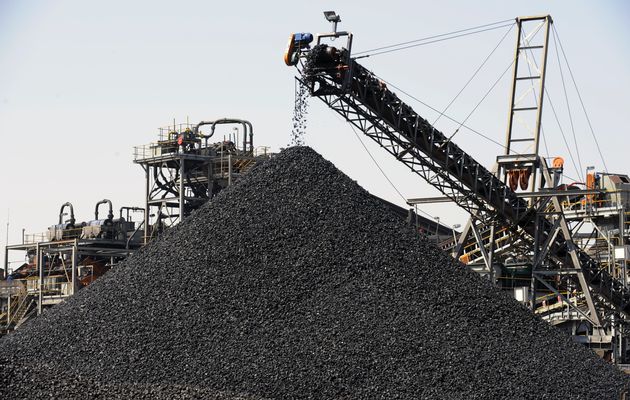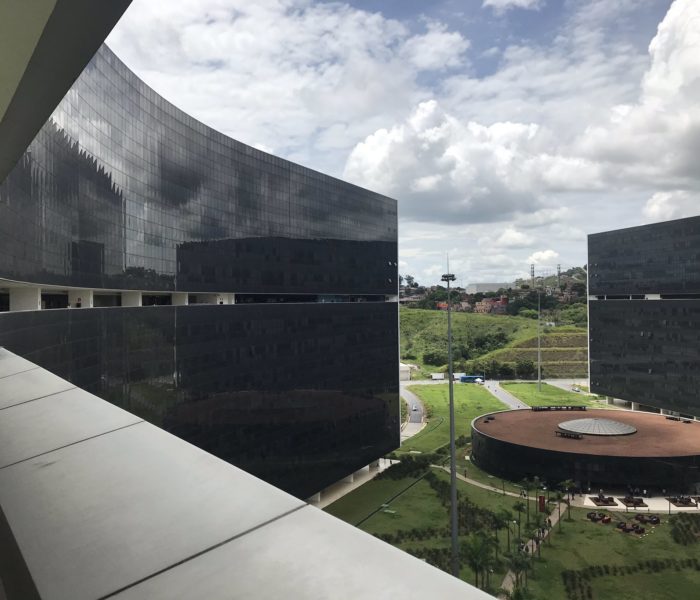The importance of the sustainable use of coal and carbochemical vocation to regional strategies of import substitution in Rio Grande do Sul was the theme of the Seminar “The New Perspectives for the sustainable use of coal”. The event was held late April this year, at the headquarters of the Federation of Industries of Rio Grande do Sul (Fiergs), in Porto Alegre. It brought together entrepreneurs who are interested in investing in possible coal-related business, especially in connection with the development of a carbochemical industrial complex.
According to the State Secretary of Mines and Energy (SME), Artur Lemos Junior, the lack of policies targeted to the sector has created a gap. “We must combine all our efforts to move forward. We have been working since 2015 to plan the coal industry. We want to show our state to the world. To show everyone that the project is feasible and environmentally safe”.
Rio Grande do Sul has 89% of Brazil’s coal reserves. This is more than 28 billion tons of ore. According to Lemos, “It is really a ‘gold mine’ that needs to be properly explored.”
With the partnership of the National Union of the Coal Extraction Industry (Sniec), the president of Fiergs, Heitor José Müller, expressed his support: “Since clean mining technology is possible, we should obviously take advantage of this new economy,” he said.
Müller stressed that the current challenge is precisely to find out how to combine public policies with the private sector. “If we want to turn coal into an important economic factor of the state – and billions of dollars in investments may be involved – then we must rely on the sensitivity of our politicians to ensure the viability of the projects already underway and of many others yet to come.
The possible privatizations of CRM (Rio Grande do Sul’s Mining Company) and Sulgás will be a big step towards attracting investments for the sector.
Integrated Carbochemical Project
The purpose of establishing a coal gasification plant in the Baixo Jacuí Region, with investment forecast of US$ 1.5 billion, according to international consultants, is the most viable alternative. Studies were carried out to prove the viability of the construction of the industrial complex based on a carbon chemistry policy that is based on the use of green coal extracted with minimal damage to the environment. The new complex could be a home-made solution to increase ICMS collection and also for the supply of this valuable input to the industries of Rio Grande do Sul.
In this regard, the State Government, through the departments of Mines and Energy and Economic Development, Science and Technology, the Federation of Industries of Rio Grande do Sul (Fiergs) and the National Union of the Coal Extraction Industry (Sniec) signed a cooperation agreement to support the planning of the construction of the Coal Complex (Energy and Carbochemistry). The technical cooperation agreement is aimed to foster the development of studies and planning, targeted to the construction of an Industrial Complex for the use of coal in the energy and carbochemical segments. The starting point for the study is the Agreement of Institutional Support, signed by Fiergs and the Union, on August 31, 2016.
In partnership with South Korea’s Posco, Copelmi is leading a gasification project of Rio Grande do Sul’s coal for the production of Synthetic Natural Gas (SNG). The project, which is at an advanced stage (started in 2014) contemplates the annual consumption of 3.5 million tons/year of mineral coal, provided by Guaiba mines, for the generation of 2.14 million m3/day of SNG. The intermediate product of this process, Syngas, is an important input for the chemical industry, the main source of the so-called C1 chemistry products, especially ammonia and its derivatives and methanol. Gasoline, naphtha and others can also be produced. Lemos explains that the possible integration of these two projects would give shape to the Integrated Carbochemical Project of Rio Grande do Sul, which would promote the use of SNG as a substitute of natural gas and the production of petrochemical commodities.
The director of new business development of Copelmi, Roberto Faria, who was one of the speakers at the seminar, believes that many companies are interested in business in the coal segment that goes beyond the scope of electric power generation in thermal plants. “A carbochemical complex can generate an economic movement of more than US$ 5 billion,” he said. The idea of a carbochemical complex in Rio Grande do Sul provides opportunities for the productive chains of civil construction, metal mechanics, machinery and equipment, chemistry, among others.
The result of this process is the generation of direct and indirect higher paying jobs, taxes generated by a greater number of industrial projects, attraction of national and international players willing to make investments and operate in the Brazilian market, attraction of companies to support these new investments and more value-adding to the Industrial Product, among others.
[28/04/2017]
Sources: Secretaria de Minas e Energia – Newspaper Jornal do Comércio, Zero Horal, Local Knowledge










